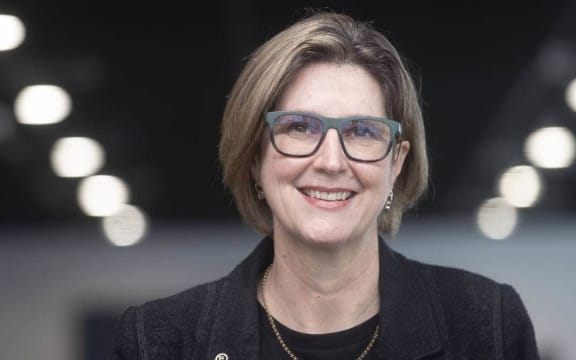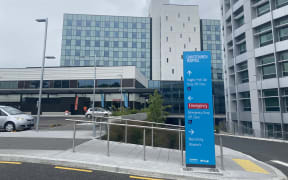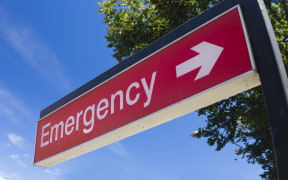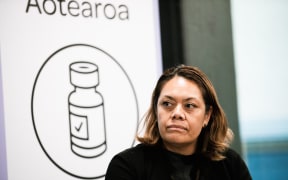
Photo: 123RF
After-hours medical services in some regions are on the verge of collapse, as overworked GPs signal they can no longer provide cover or the funding falls short.
Documents obtained under the Official Information Act show in the first eight months of last year, 24 practices and clinics had to reduce hours or close their doors due to critical staff shortages and cost pressures.
In Porirua, health officials are considering replacing the overnight doctor at Kenepuru Community Hospital's accident and medical centre with a telehealth service.
It is a 25-kilometre trip to Wellington Hospital - and about the same distance to Hutt Hospital - by car.
Ngāti Toa chief executive Helmut Modlik said in Porirua the iwi-run health service Ora Toa and other clinics already covered Thursday nights and the weekends.
He was confident they could provide the doctors - if Te Whatu Ora paid them.
"It's just signalling to them and everybody else in our community that we just cannot accept that there will be a stepping back from making those services available."
The senior doctors union said staff were seeing more than 20 patients in a single night - including a small number of "high acuity" cases several times a week.

Association of Salaried Medical Specialists executive director Sarah Dalton. Photo: LDR / Stuff / Kevin Stent
Executive director Sarah Dalton said it was a critical service for more than 100,000 people, and the same thing was happening in other regions.
"What is a reasonable level of public health provision, given that we know that people don't always get acutely unwell of deteriorate quickly between the hours of 8am and 5pm?"
In the 13 months to August, urgent care clinics in Auckland were forced to close early nearly 200 times due to staff shortages.
Nationwide there were more than 100 providers of after-hours care, each with a different mix of funding from Te Whatu Ora, primary health organisations, ACC, private providers and patient co-payments.
Te Whatu Ora has boosted annual funding by $17 million to "stabilise" urgent care services.
But GPs across the country said current funding was not enough to cover the day-to-day work, let alone afterhours care.
The only on-call night time GP service between Whangārei and Auckland's North Shore closed in March.
General Practice New Zealand chair Porirua GP Bryan Betty said it was patients who ended up paying the price.
"It does lead to problems in terms of late presentations and presentations to emergency departments which puts pressures on already overstretched services."
A briefing to the previous Health Minister Ayesha Verrall in August 2023 said officials were preparing a business case for improving after-hours services ahead of this year's Budget.
'Gaps are around the country'
Royal New Zealand College of Urgent Care (RNZCUC) chairperson Kelvin Ward told Midday Report the shortage of doctors and nurses was due to a number of factors, including staff moving to Australia for better pay or other higher wage roles within New Zealand.
That was leading to pressure on urgent care clinics, which had to reduce hours and effectively impacted patient care too.
"The gaps are around the country. Auckland has been affected, especially through last year. There have been problems with shortages of nursing staff in Canterbury and also here in Wellington, we're having issues with a lack of staff as well at the moment."
Urgent care clinics have funding contracts through ACC, but there was no nationally consistent funding model for non-accident or medical consultations for in-hour patients, he said.
"There is often very little funding, if any funding at all, for a patient who presents with a medical problem in-hours, and because of the pressure in general practice, we are seeing an increase proportion of our patients presenting in-hours and obviously there's no funding that follows that patient."
RNZCUC was taking part in a Te Whatu Ora a review of primary care funding and the ACC funding for urgent care clinics, he said.
'Lack of focus on primary health'
Not-for-profit SouthLink Trust runs 23 practices nationwide. Its chief executive, Karl Andrews, said the sector was awaiting the outcome of the ongoing review into the primary health funding model.
However, he was "not optimistic" the current situation would be addressed in this year's Budget.
"This lack of focus on primary health is at a time where we are seeing a stretched and diminishing GP workforce being pushed even further in their day-to-day roles."
The growing demands and complexity of patients and increased administration added to the pressure.
"While we acknowledge the need to support our communities after-hours, our first priority has to be to provide the best care during normal working hours."
The regional variability and contracted demands of the after-hours contracts with Health New Zealand had to be "addressed with urgency", he said.
Health New Zealand Te Whatu Ora planned and unplanned care group manager Tim Wood said retaining in-person after-hours services had become "more challenging for a range of reasons", including workforce and sustainability pressures.
"Where PHOs struggle to provide after-hours services, we work with them to identify local solutions."
Despite that $17m boost to funding, there was "more work to do" on urgent care, as part of the wider primary care development programme, he said.
"We will be looking to address a number of issues including inconsistent pricing, inconsistent service hours, variable models of care, use of alternative workforces, use of telehealth, and inconsistent copayment rules across the country."
Meanwhile, there were a range of telehealth services available, including Healthline.
"As always, our hospital's Emergency Departments across the motu are available to see any patient who requires urgent treatment."
Ward said while telehealth had a role, it was not replacement for face-to-face consultations, especially in under-serviced areas.







